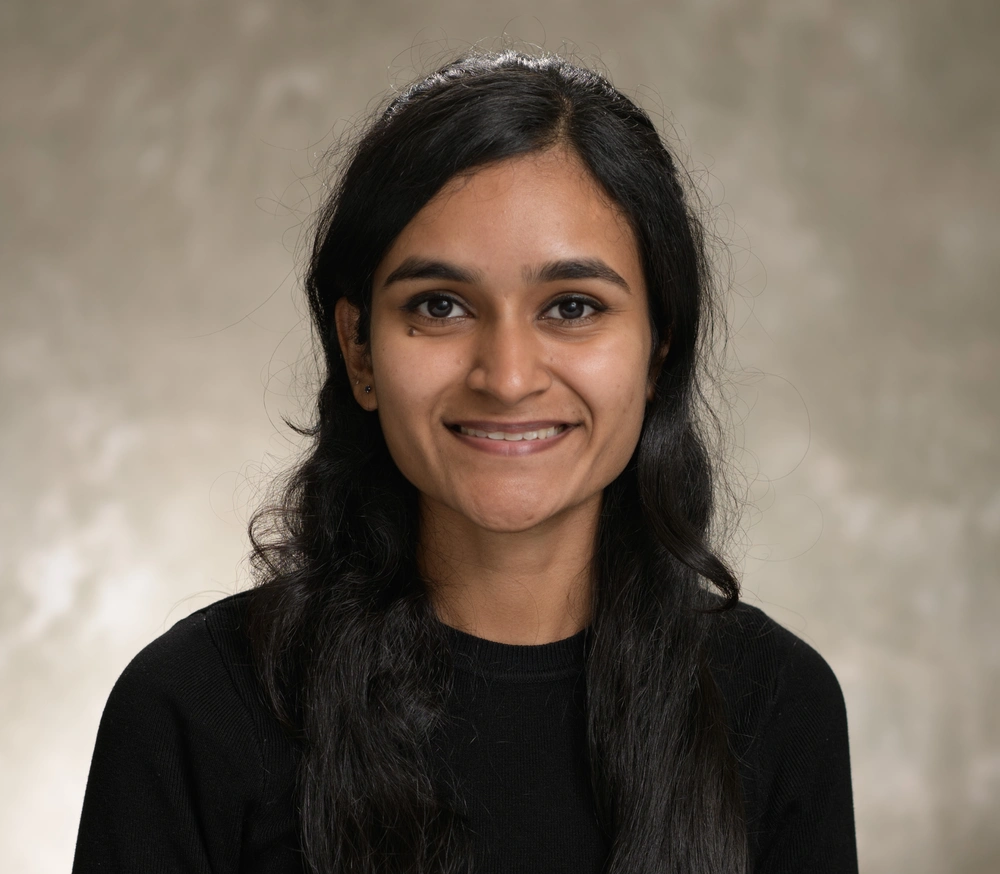
As a graduate student in the Erik Nelson Lab, Dhanya Pradeep investigates how metabolic signaling pathways regulate immune responses in breast cancer. Her research is centered on the farnesoid X receptor (FXR), a metabolic receptor traditionally associated with bile acid metabolism, and its role in immunosuppression in the tumor microenvironment.
This spring, Dhanya was selected to receive the Endocrine Society’s Research Experiences for Graduate and Medical Students Award. The award provides funding for her summer research, access to a national seminar series, and the opportunity to present her research at the 2025 Endocrine Society Annual Meeting, the world's largest gathering of endocrinologists.
We spoke with Dhanya to learn more about her research, her experiences in the Nelson Lab, what this fellowship means for an early-career scientist, and plans for the future.
MCB: Why did you decide to pursue graduate work in the School of MCB at Illinois?
Pradeep: I've always been fascinated by cancer biology, and in my post-baccalaureate program, I knew how much I loved asking questions and taking a project from start to finish. That experience pushed me toward a PhD. In addition to the excellent research at MCB, I ended up at Illinois in part because of the lab rotation system—it let me test-drive several areas of research before choosing one. I was also drawn to the collaborative environment of the MCB program. The students and faculty here genuinely want to see one another succeed. That sense of camaraderie drew me in.
MCB: Can you describe your work in the Nelson Lab?
Pradeep: In the Nelson Lab, I study the farnesoid X receptor (FXR), a bile acid–activated nuclear receptor traditionally associated with hepatic and intestinal lipid metabolism. Our research focuses on its emerging role in breast cancer, particularly its immunomodulatory potential. FXR occupies a unique position at the crossroads of metabolic, endocrine, and immune signaling—systems that are increasingly recognized as critical players in tumor microenvironment dynamics. I am currently screening a panel of primary and secondary bile acids to evaluate their ability to activate FXR within myeloid immune cells in a manner that reduces the expansion of regulatory T cells (Tregs), which are known to suppress anti-tumor immune responses and promote tumor progression.
Early findings from our lab suggest that FXR expression within myeloid immune cells is associated with reduced Treg expansion and tumor burden, suggesting that FXR may have protective immunomodulatory functions in the context of breast cancer selective activation of FXR can attenuate Treg-mediated immunosuppression, offering a novel immunotherapeutic avenue for breast cancer—an area where immunotherapy has historically shown limited efficacy. By probing how gut microbiome–driven alterations in bile acid profiles affect FXR activity and downstream immune pathways, our work aims to develop a probiotic approach to modulate the FXR-myeloid cell-Treg axis in a way that impedes metastatic growth, potentially promoting the efficacy of standard of care. This will ultimately inform rational design uncover endogenous bile acid ligands that can serve as scaffolds for the development of FXR-targeted small molecule therapies.
Ultimately, this project seeks to bridge endocrine and immunological frameworks in cancer biology to develop more precise, metabolism-informed interventions.
MCB: What has your experience been like in the Nelson Lab?
Pradeep: It’s been wonderful. The lab is incredibly collaborative, and everyone is always ready to support one another, especially during large animal studies, which require a true team effort. That kind of environment makes coming into lab each day something I genuinely look forward to.
Dr. Nelson is one of the most dedicated and inspiring mentors I’ve worked with. He leads by example and creates space for us to take ownership of our projects. He’s always open to our ideas and helps guide us through the unpredictable nature of research, while also encouraging us to seek out opportunities—like the Endocrine Society Award.
MCB: What does receiving the Endocrine Society Award mean to you?
Pradeep: It’s an incredible honor. I’ll be participating in a virtual seminar series with other fellows, where we’ll present our work, get feedback, and engage in discussions with leaders in the field.
I’ll also get the chance to attend the Endocrine Society Annual Meeting and present my findings. I'm especially excited about that—being able to network with researchers working at the same crossroads of metabolism, immunity, and cancer is anincredible opportunity for both learning and collaboration.
MCB: How has your time at Illinois shaped your academic and professional goals?
Pradeep: I’ve grown so much here, largely because of the supportive environment and the resources available to us. The collaborative nature of the campus allows us to push our science further, and the mentorship I’ve received has played a major role in shaping my development as a scientist.
MCB: Where do you hope to go after receiving your PhD?
Pradeep: I see myself staying in research—either in academia or industry. I like being at the bench and just seeing where the science leads. I'm particularly interested in translational research that bridges basic science and clinical significance, especially in cancer and immunology. My long-term goal is to be working on therapies that make a tangible difference in people's lives.
